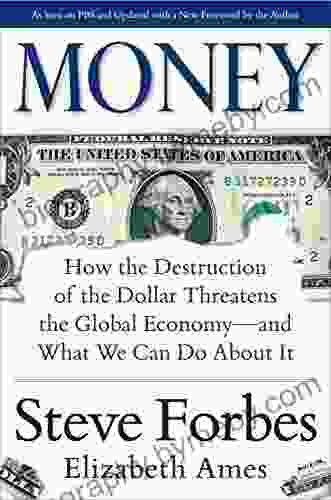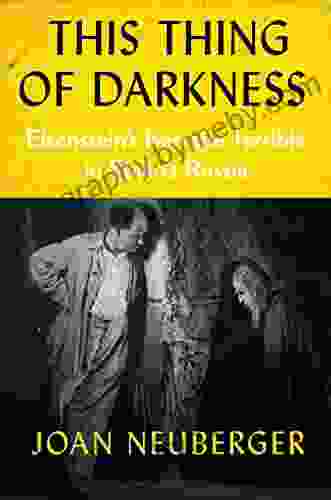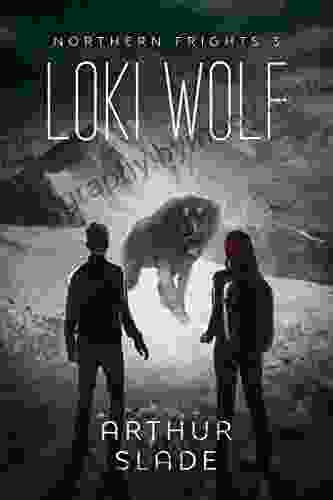Eisenstein's "Ivan the Terrible": A Film that Dared to Challenge Stalin's Reign


4.6 out of 5
| Language | : | English |
| File size | : | 8003 KB |
| Text-to-Speech | : | Enabled |
| Screen Reader | : | Supported |
| Enhanced typesetting | : | Enabled |
| Word Wise | : | Enabled |
| Print length | : | 602 pages |
The Genesis of a Cinematic Masterpiece
In the tumultuous years of Stalin's rule, filmmaker Sergei Eisenstein embarked on an ambitious project: a cinematic retelling of the life of Ivan IV, the 16th-century Russian ruler known as Ivan the Terrible. Eisenstein saw in Ivan's story a parable about the complexities of power and the ruthless pursuit of absolute authority.
Eisenstein's film, split into two parts, was a visual and narrative tour de force. It employed groundbreaking cinematic techniques, such as deep focus, montage editing, and chiaroscuro lighting, to create a haunting and unforgettable spectacle. The film's lush cinematography, opulent costumes, and mesmerizing performances evoked a bygone era with astonishing vividness.
A Double-Edged Sword: Glorification and Subversion
On the surface, "Ivan the Terrible" appeared to be a grand tribute to Stalinist authority. It depicted Ivan as a strong and decisive leader, ruthlessly crushing his enemies to consolidate his power. This portrayal aligned with Stalin's own self-image as the "Iron Father" of the Soviet Union.
However, beneath the surface of Eisenstein's cinematic spectacle lay a more subversive message. Ivan's tyrannical behavior echoed Stalin's own brutal dictatorship. The film's depiction of political intrigue, paranoia, and the suppression of dissent subtly critiqued the excesses of Stalin's regime.
Clashes with Stalin and the Shadow of Censorship
Eisenstein's film did not escape Stalin's scrutiny. The dictator saw both the glorification and subversion within the film and grew increasingly suspicious of Eisenstein's intentions.
Censors demanded a recut of the second part, which was considered excessively violent and politically provocative. Eisenstein reluctantly complied, but the damage had been done. Stalin's trust in the filmmaker had been shattered.
Artistic Triumph and Political Persecution
Despite the controversy, "Ivan the Terrible" became a critical and commercial success. Audiences were captivated by its visual brilliance and epic scope. Internationally, the film was hailed as a cinematic masterpiece, cementing Eisenstein's reputation as one of the greatest directors of all time.
However, this artistic triumph came at a heavy price. Eisenstein's relationship with Stalin was irreparably damaged. The filmmaker found himself under increasing political pressure and surveillance. The completion of the film's third part was indefinitely postponed.
A Fleeting Legacy and a Lasting Impact
In the aftermath of the film's release, Eisenstein's life took a tragic turn. He died in 1948, his reputation tarnished by the persecution he had endured. "Ivan the Terrible" became both a testament to his artistic genius and a reminder of the suffocating nature of Soviet censorship.
The film's legacy, however, has endured. It has been subject to numerous scholarly analyses, exploring its complex interplay of politics, art, and historical interpretation. "Ivan the Terrible" remains a seminal work in film history, a captivating cinematic experience that continues to provoke debate and inspire filmmakers to this day.
: A Film that Transcended Time and Tyranny
Sergei Eisenstein's "Ivan the Terrible" stands as a remarkable testament to the power of cinema to both glorify and subvert authority. Through its breathtaking visuals, evocative storytelling, and subtle political critique, the film transcended its time to become a timeless masterpiece.
Despite the persecution Eisenstein faced, his film survives as a testament to artistic courage and the enduring struggle between freedom of expression and political oppression. "Ivan the Terrible" remains a compelling reminder of the complexities of history and the enduring impact that art can have on society.
4.6 out of 5
| Language | : | English |
| File size | : | 8003 KB |
| Text-to-Speech | : | Enabled |
| Screen Reader | : | Supported |
| Enhanced typesetting | : | Enabled |
| Word Wise | : | Enabled |
| Print length | : | 602 pages |
Do you want to contribute by writing guest posts on this blog?
Please contact us and send us a resume of previous articles that you have written.
 Book
Book Novel
Novel Page
Page Chapter
Chapter Text
Text Story
Story Genre
Genre Reader
Reader Library
Library Paperback
Paperback E-book
E-book Magazine
Magazine Newspaper
Newspaper Paragraph
Paragraph Sentence
Sentence Bookmark
Bookmark Shelf
Shelf Glossary
Glossary Bibliography
Bibliography Foreword
Foreword Preface
Preface Synopsis
Synopsis Annotation
Annotation Footnote
Footnote Manuscript
Manuscript Scroll
Scroll Codex
Codex Tome
Tome Bestseller
Bestseller Classics
Classics Library card
Library card Narrative
Narrative Biography
Biography Autobiography
Autobiography Memoir
Memoir Reference
Reference Encyclopedia
Encyclopedia Arthur Kleinman
Arthur Kleinman Jane Addams
Jane Addams Matteo Rizzato
Matteo Rizzato Gillian Clements
Gillian Clements Armin Weber
Armin Weber Anna B Doe
Anna B Doe Roy Benaroch Md
Roy Benaroch Md Emil Draitser
Emil Draitser Chad Willardson
Chad Willardson John Jennings
John Jennings Mona Prince
Mona Prince Raann Clegg
Raann Clegg Tom C Mckenney
Tom C Mckenney Jim Rohn
Jim Rohn Anne E Brevig
Anne E Brevig James Dale Davidson
James Dale Davidson Derek Bullen
Derek Bullen Matt Mullenix
Matt Mullenix Annie Martin
Annie Martin Archimedes
Archimedes
Light bulbAdvertise smarter! Our strategic ad space ensures maximum exposure. Reserve your spot today!

 George HayesWinter Wishes: Disney Princess Step Into Reading - A Magical Escape for Young...
George HayesWinter Wishes: Disney Princess Step Into Reading - A Magical Escape for Young...
 Derrick HughesThe Coming Collapse of the Dollar: How It Will Threaten the Global Economy...
Derrick HughesThe Coming Collapse of the Dollar: How It Will Threaten the Global Economy... Eugene PowellFollow ·17.5k
Eugene PowellFollow ·17.5k Phil FosterFollow ·13.7k
Phil FosterFollow ·13.7k Tyrone PowellFollow ·18.3k
Tyrone PowellFollow ·18.3k Clark BellFollow ·13.5k
Clark BellFollow ·13.5k Marcus BellFollow ·17.8k
Marcus BellFollow ·17.8k Matt ReedFollow ·5k
Matt ReedFollow ·5k Peter CarterFollow ·11.3k
Peter CarterFollow ·11.3k Franklin BellFollow ·17.6k
Franklin BellFollow ·17.6k

 Juan Rulfo
Juan RulfoThe Easy Ingredient Ketogenic Diet Cookbook: Your...
Embark on a culinary adventure that...

 Zachary Cox
Zachary CoxDepression Hates a Moving Target: A Groundbreaking...
Depression...

 Colin Richardson
Colin RichardsonUnleash Your Spine-Tingling Curiosity: Dive into the...
In the realm of...

 Evan Hayes
Evan HayesMarketing Fashion Portfolio: The Ultimate Guide to...
In the competitive world of fashion, it is...
4.6 out of 5
| Language | : | English |
| File size | : | 8003 KB |
| Text-to-Speech | : | Enabled |
| Screen Reader | : | Supported |
| Enhanced typesetting | : | Enabled |
| Word Wise | : | Enabled |
| Print length | : | 602 pages |












